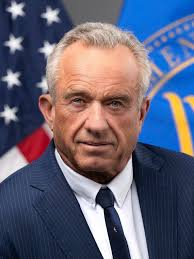RFK Jr.: A New Force in American Politics

Introduction
Robert F. Kennedy Jr. (RFK Jr.) has emerged as a notable figure in the current political landscape, characterised by his strong stances on various issues ranging from environmental protection to public health. As a member of the renowned Kennedy family, RFK Jr. carries a legacy that has significant historical importance. His candidacy for the 2024 presidential election has fueled discussions about his potential impact on American politics, particularly in a divisive climate.
Background and Political Aspirations
RFK Jr. is recognised not only for his lineage as the son of Senator Robert F. Kennedy and nephew of President John F. Kennedy, but also for his stature as an environmental attorney and activist. In April 2023, he announced his candidacy for the 2024 presidential election as a Democrat, breaking from the political norms associated with his family’s legacy. This move has garnered both praise and criticism, as many view his campaign as a departure from traditional Democratic values.
Controversies and Public Perception
His campaign has not been without controversy. RFK Jr. has been a prominent voice in the anti-vaccine movement, which has raised concerns about public health and safety. Detractors argue that his views may contribute to vaccine hesitancy, particularly in the context of the ongoing COVID-19 pandemic and other public health initiatives. However, his supporters appreciate his advocacy for health freedom and informed consent.
Additionally, RFK Jr.’s strong criticisms of corporate influence in politics resonate with a segment of voters who feel disenfranchised by the current political establishments. His pledges to combat pollution and advocate for sustainable practices reflect a commitment to environmental justice, which appeals to many environmentally conscious voters.
Impact on the Democratic Landscape
The significance of RFK Jr.’s candidacy may shape the Democratic primary in ways that could influence the outcome of the general election. His presence in the race presents an alternative to mainstream Democratic candidates and may attract voters who are disillusioned with conventional party politics. Analysts suggest that his unique platform could fracture the Democratic base, potentially benefiting Republican candidates in the upcoming elections.
Conclusion
In summary, Robert F. Kennedy Jr.’s entry into the political arena as a presidential candidate is noteworthy in a turbulent time for American politics. His combination of historic legacy, controversial views, and strong advocacy for environmental and health issues creates a multifaceted candidate profile. As the election approaches, it will be crucial for voters to consider the implications of his candidacy, not just for the Democratic Party but for the broader electoral landscape in the United States.







